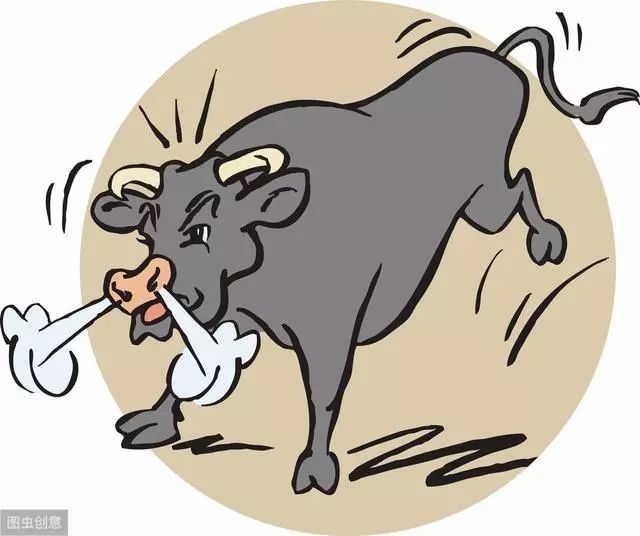Before reading this article, please click on the blue text above“Elegant Tea”, then click“Follow”, so you can continue to receive the latest articles for free. There are daily shares. It is completely free to subscribe, so feel free to follow.
1. Introduction
With the increasing material demands, the need for spiritual nourishment has become increasingly important. The dual pressures of work and life constantly affect our mood, leading to emotional fluctuations that can sometimes be hard to grasp. Therefore, “Liver Qi Stagnation” has become a frequently mentioned term in our lives. But what exactly is Liver Qi Stagnation?
The liver plays a significant role in the human body, governing the smooth flow of Qi. When liver function is abnormal, Qi often stagnates, resulting in Liver Qi Stagnation. “Liver Qi Stagnation” is a shorthand for this condition.

2. Simple Physiological Functions of the Liver
The liver governs the smooth flow of Qi. The liver corresponds to the wood element, which is flexible and resilient. “Smoothing” implies unblocking, while “discharging” suggests releasing. Therefore, the primary function of the liver is to ensure the smooth flow of Qi in the body, preventing stagnation. This is the most crucial physiological role of the liver, and dysfunction can manifest as various symptoms.
The liver stores blood. According to the Huangdi Neijing, “When a person lies down, blood returns to the liver.” When resting, blood is stored in the liver, and during activity, the blood stored in the liver is released. “The feet receive blood to walk, the palms receive blood to grasp, and the fingers receive blood to hold,” allowing blood to circulate throughout the body and perform its physiological functions.
The liver’s connection with other parts of the body. The liver meridian connects to the eyes; the eyes are the windows to the soul but are primarily managed by the liver. Therefore, when treating eye issues, the liver is often the focus. The tendons belong to the liver system, and when the body’s tendons are tense, treatment often involves the liver. Additionally, the liver meridian starts from the toes and traverses many areas; if there is a liver disease, there may also be pathological changes along the meridian’s path.

3. What Abnormal Reactions Occur in the Body Due to Liver Qi Stagnation?
1. Distension. When Qi stagnates, distension is the most common symptom. The liver meridian runs through the chest and flanks, so distension in these areas is a typical manifestation of Liver Qi Stagnation. If Qi stagnates in the stomach, there will be distension in the epigastric region; if it lingers in the abdomen, there will be abdominal distension; if it stagnates in the lower abdomen, there will be distension in that area; some individuals may even experience skin distension and pain along the liver meridian.
2. Emotional disturbances. The liver governs the smooth flow of Qi and regulates emotions. When Liver Qi stagnates, irritability and anger can arise. If you press down on a balloon and keep it submerged in water, it will occasionally pop up. Similarly, when Liver Qi is compressed, it can surge upwards, easily leading to anger. In addition to irritability, some individuals may also exhibit anxiety, depression, and low mood, which are manifestations of Liver Qi Stagnation. People often sigh, which can help release stagnant Liver Qi and alleviate the feeling of congestion.

3. Dizziness and headaches. The mechanism of dizziness is similar to that of irritability; prolonged stagnation of Liver Qi can lead to an explosive release, causing it to surge upwards to the head, resulting in dizziness. The liver meridian reaches the crown of the head, and headaches can also occur due to Liver Qi stagnation. If Liver Qi is overly exuberant, the stagnation intensifies, leading to dizziness and headaches, and in severe cases, fainting or even stroke.
4. Discomfort in the eyes. The liver is the root of the eyes, and the eyes are an extension of the liver. When Liver Qi stagnates, the liver meridian becomes obstructed, leading to swelling in the eyes; if blood cannot flow normally through the liver meridian to the eyes, symptoms such as blurred vision and night blindness (where vision becomes blurry at night, similar to a sparrow’s eyesight) may occur.

5. Discomfort in the ears. When Liver Qi stagnates and surges upwards, it can lead to dizziness and tinnitus. If Liver Qi stagnates and blocks the ears, it may result in sudden deafness. These are all symptoms caused by Liver Qi stagnation, albeit with different manifestations.
6. Sleep disturbances. When Liver Qi stagnates, Yang Qi cannot return to Yin, and blood cannot smoothly return to the liver, leading to the liver not storing blood. Blood nourishes the spirit; without blood nourishment, insomnia may occur, and even if one falls asleep, they may experience frequent dreams, often involving arguments, which are manifestations of daily Liver Qi stagnation.
7. Menstrual irregularities. The regularity of a woman’s menstrual cycle is closely related to the normal function of the liver and kidneys. The kidneys govern the “storage” of menstruation, and when the organs function well, they produce vital energy, which is stored in the kidneys. This vital essence is the material basis for menstruation. The liver governs the “discharge” of menstruation, ensuring the smooth flow of menstrual blood from the body. When Liver Qi stagnates, this regularity is disrupted, leading to delayed menstrual cycles; prolonged stagnation can suddenly erupt, causing early menstruation. Thus, Liver Qi stagnation can lead to both delayed and early menstruation, manifesting differently in different individuals.
8. Menstrual symptoms.Women with Liver Qi stagnation may not only experience menstrual irregularities but also various symptoms during menstruation. Some women may experience abdominal distension, breast tenderness, and emotional instability during their menstrual period, all caused by Liver Qi stagnation.

9. Male reproductive issues. The liver meridian runs through the genital area; when Liver Qi stagnates, it can lead to discomfort and distension in the groin, and even impotence, affecting relationships.
10. Abnormal water metabolism. Water metabolism is closely related to the lungs, spleen, and kidneys, but it also relies on the smooth flow of Liver Qi. When Liver Qi stagnates, water can also stagnate, leading to different symptoms depending on the location of stagnation. If it stagnates in the bladder, it can cause urinary difficulties; if it stagnates in the abdomen, it can lead to ascites. In Traditional Chinese Medicine, there are four major difficult syndromes: wind, phlegm, distension, and obstruction; patients with distension often suffer from prolonged Liver Qi stagnation, leading to metabolic abnormalities and ultimately causing water to stagnate in the abdomen.
Some may wonder if the presence of the above symptoms indicates Liver Qi stagnation. While Liver Qi stagnation can present one or more of these symptoms, inferring it solely from a single symptom is not valid. Sometimes, multiple symptoms may overlap but still not confirm the diagnosis. Therefore, TCM treatment requires comprehensive diagnosis rather than hastily selecting formulas or medications based on one or a few symptoms.
4. How TCM Addresses Liver Qi Stagnation
Understanding the causes of these symptoms naturally leads to targeted treatment. Since Liver Qi is stagnant, it must be unblocked to promote its movement. Commonly used herbs for soothing the liver and regulating Qi include Chai Hu (Bupleurum), Bo He (Peppermint), Mu Xiang (Aucklandia), Xiang Fu (Cyperus), and Zhi Ke (Bitter Orange); if Liver Qi stagnation surges upwards, it is necessary to combine it with heavy herbs to descend the rebellious Liver Qi, such as Long Gu (Dragon Bone), Mu Li (Oyster Shell), Dai Zhe Shi (Hematite), and Niu Xi (Achyranthes); if water metabolism is affected, diuretic herbs like Fu Ling (Poria), Bai Zhu (White Atractylodes), Ze Xie (Alisma), and Che Qian Zi (Plantago Seed) should be included. Based on the different symptoms presented, selecting appropriate herbal combinations is the essence of TCM syndrome differentiation and treatment.
Stacking herbs is a major taboo in TCM; each formula must have its own composition. A formula without structure is merely a haphazard mix. A disciplined, well-organized team with strong individual capabilities can achieve victory in battle. Choosing the right herbs enhances individual strength; appropriate combinations ensure perfect coordination and discipline. Only with such herbal combinations can one overcome diseases and restore normal function.

